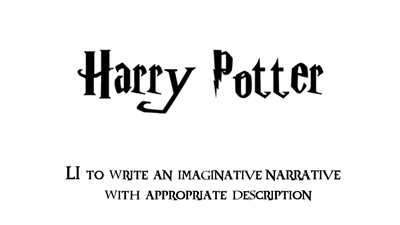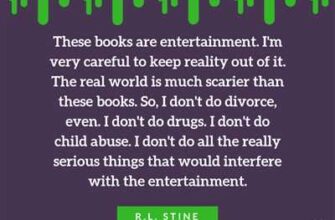
When it comes to creating captivating stories, J.K. Rowling’s Harry Potter series is a prime example of success. The memorable characters, richly developed plotlines, and immersive world-building have captivated readers of all ages. But have you ever wondered how Rowling was able to bring Hogwarts, Harry, and his friends to life? In this article, we will explore the creative process behind writing Harry Potter and discover what makes it so special.
One of the key reasons why Harry Potter is so widely read and loved is because of the relatability of its characters. Rowling’s characters are not one-dimensional archetypes; they are complex individuals with their own struggles, flaws, and growth throughout the series. Readers can see themselves in Harry, Hermione, and Ron, and can empathize with their experiences and emotions.
Another reason why Harry Potter is such a literary phenomenon is because of its exploration of relevant themes, such as prejudice and discrimination. Rowling uses the wizarding world as a metaphor for the real world, highlighting the struggles and prejudices that exist among both wizards and non-wizards. By addressing these issues in her books, Rowling has sparked important discussions and opened the minds of her young readers to the importance of acceptance and equality.
In addition to the engaging characters and thought-provoking themes, the success of Harry Potter can also be attributed to Rowling’s impeccable storytelling and writing style. Her stories are filled with suspense, mystery, and heartwarming moments that keep readers hooked from the very first page. Rowling’s attention to detail and her ability to create vivid imagery allows readers to fully immerse themselves in the magical world she has created.
It’s important to remember that writing a series like Harry Potter is not an easy task. Rowling faced numerous challenges and setbacks along the way. She had to juggle multiple storylines, keep track of a vast cast of characters, and ensure that each book built upon the previous one while still being enjoyable as a standalone novel. But it was her dedication, perseverance, and love for her craft that led to the creation of one of the most beloved series of all time.
So, if you aspire to write a series that captures the hearts of millions, take inspiration from J.K. Rowling and her Harry Potter novels. Start by creating compelling characters that readers will root for, explore relevant themes that resonate with your audience, and put in the hard work to refine your writing skills. Remember, it’s not just about the end result, but also the journey and the impact your words can have on others.
Why Everyone Should Read Harry Potter
Harry Potter is more than just a series of novels. It is a literary phenomenon that has captured the hearts and imaginations of readers all over the world. But why should everyone read Harry Potter? Well, let’s take a look at some of the reasons.
Firstly, Harry Potter teaches us about the importance of reading. In a world where technology often dominates our lives, it’s crucial to remember the power of books. Reading expands our vocabulary, improves our writing skills, and allows us to escape into new and exciting worlds.
Secondly, the pure-blood prejudice in the Harry Potter series mirrors real-world prejudices. Just like in the books, we often find ourselves judging others based on their backgrounds or associations with certain groups. By reading Harry Potter, we are reminded of the dangers of such bias and the importance of treating everyone with respect, regardless of their blood, heritage, or affiliations.
Thirdly, the characters in the Harry Potter series are relatable and represent a wide range of archetypes. Whether it’s Harry’s struggle with his identity, Hermione’s intelligence and determination, or Dobby’s loyalty – there’s something for everyone to relate to. These characters teach us valuable lessons about friendship, love, and the power of good over evil.
Moreover, J.K. Rowling’s writing style is captivating and her storytelling abilities are remarkable. Her vivid descriptions and attention to detail make the world of Hogwarts come alive in our minds. As readers, we are taken on a magical journey that keeps us hooked from start to finish.
Last but not least, the Harry Potter series has had a significant impact on its readers. Many children who were once reluctant readers have discovered the joy of reading through Harry Potter. It’s a testament to the power of storytelling and the ability of books to inspire and captivate young minds.
In conclusion, there are countless reasons why everyone should read Harry Potter. Whether it’s the relatable characters, the thought-provoking themes, or simply the joy of diving into a well-crafted story – there’s something for everyone in the wizarding world. So, grab a copy of Harry Potter and experience the magic for yourself!
Treat writing like it’s your job

When it comes to writing, J.K. Rowling, the author of the Harry Potter series, is definitely a role model for aspiring authors. She treated writing as her job, dedicating herself to her craft and putting in the necessary effort to create a world of wizards, stories, and adventures that captivate both children and adults alike.
Writing is not always easy, and for many authors, it can be a struggle. However, Rowling’s dedication and hard work have proved that with perseverance, anyone can achieve their goals. Harry’s journey from a young boy living under the stairs to the savior of the wizarding world is a testament to the power of storytelling and the importance of never giving up.
One of the reasons why the Harry Potter series has been so successful is because of the rich and diverse characters that Rowling created. From Harry himself to Hermione, Ron, and the entire cast of Hogwarts students, each character has their own unique traits, flaws, and struggles. Rowling has portrayed characters from all walks of life, addressing issues such as prejudice and discrimination in a way that resonates with readers of all ages.
Rowling’s success is not just a result of her imagination, but also her dedication to the craft of writing. She once said, “I wrote for nearly four years without ever showing it to anyone, because I was too scared of rejection. But I knew I loved writing, so I kept working at it.” This shows that even the most successful authors have their moments of doubt and struggle.
Rowling’s dedication to her writing has paid off in more ways than one. Her books have sold millions of copies worldwide, and the Harry Potter series has become a cultural phenomenon. The positive response from readers and the literary world is a testament to the power of storytelling and the impact that good writing can have.
Aspiring authors should take a page out of Rowling’s book and treat writing like it’s their job. Just as a wizard-in-training would dedicate hours each week to practicing magic, writers should set aside dedicated time each day or week to work on their craft. Whether it’s writing a certain number of words or revising a chapter, setting goals and treating writing as a job is essential for improvement.
Furthermore, writers should be open to feedback and criticism. Rowling herself has admitted to rewriting multiple drafts of her books in order to achieve the best results. As the saying goes, “writing is rewriting.” Having a group of peers or a writing group to give constructive feedback can be incredibly valuable in the writing process.
Writing a book, especially one as successful as Harry Potter, is no easy feat. However, Rowling’s story is proof that with dedication, hard work, and a love for storytelling, anything is possible. So, aspiring authors, start your journey and treat writing like it’s your job!
Character Archetypes in Harry Potter

| In the Harry Potter series, J.K. Rowling created a rich tapestry of characters, each of whom embodies a specific archetype. These archetypes can be seen throughout the novels and provide readers with a deeper understanding of the story and its themes. |
| One of the most prominent archetypes in Harry Potter is the “hero” archetype, which is represented by the main character, Harry Potter himself. Harry’s journey from being a young wizard with no knowledge of his past to becoming the savior of the wizarding world mirrors the hero’s journey found in many literary stories. |
| Another archetype that Rowling uses is the “mentor” archetype, exemplified by characters like Albus Dumbledore and Sirius Black. These characters serve as guides and teachers to Harry, providing him with wisdom, guidance, and support throughout his journey. |
| The “sidekick” archetype is embodied by characters like Ron Weasley and Hermione Granger. They are Harry’s loyal friends who accompany him on his adventures and help him overcome obstacles. Their presence adds depth and dimension to the story, as well as providing moments of light-heartedness and camaraderie. |
| Dobby the house-elf represents the archetype of the “sacrificial hero.” He puts his own life on the line to save Harry and his friends, demonstrating selflessness and bravery. Dobby’s sacrifice serves as a powerful reminder of the importance of friendship and the fight against injustice. |
| The pure-blood wizards in the series often embody the archetype of the “villain” or the “antagonist.” Examples of these characters include Lord Voldemort and the Malfoy family. They oppose the main characters and often drive the conflict in the story. |
| J.K. Rowling’s use of character archetypes adds depth and dimension to the Harry Potter series. These archetypes allow readers to connect with the story on a deeper level and understand the struggles and triumphs of the characters. Whether it’s the hero, the mentor, the sidekick, or the villain, each character serves a purpose and contributes to the overall narrative. |
Sources
- Novels: J.K. Rowling’s Harry Potter series is one of the most popular literary works of all time. Her words have said to have a magical effect on readers, especially children.
- Reasons: The reason why these novels are typically loved among readers is because they take them on a journey to a world of magic, where characters struggle with prejudice, friendship, and the battle between good and evil.
- Open letter: One of the reasons why Harry Potter novels are so popular is because J.K. Rowling tries to be open about the issues she addresses in her books. She incorporates themes like prejudice and discrimination with diverse characters and archetypes.
- Hogwarts: The Harry Potter series is set in Hogwarts School of Witchcraft and Wizardry, which is a magical school for young wizards and witches. This setting captivates readers’ imagination and makes them feel like they are a part of the wizarding world.
- Pure-blood: In the wizarding world of Harry Potter, “pure-blood” refers to wizards who have only wizarding ancestry. This concept plays a significant role in the series and highlights the theme of social hierarchy and prejudice.
- Positive reading: Many readers find a positive message in the Harry Potter series. The stories encourage readers to embrace their uniqueness, fight for what is right, and believe in the power of love and friendship.
- Authors: J.K. Rowling is not the only author who has written about the magical world of wizards. There have been many authors who have contributed to the genre, each bringing their own unique twist and perspective.
- Peers and groups: J.K. Rowling’s writing has also been studied and analyzed by literary groups and scholars. Some have even formed groups to discuss the deeper meanings and themes in her books.
- Out-groups: J.K. Rowling’s writing has been praised for its ability to treat out-groups with understanding and empathy. The characters in the Harry Potter series often challenge stereotypes and showcase the importance of acceptance and inclusivity.
- Results: The results of J.K. Rowling’s writing can be seen in the immense popularity of her books, the numerous fan clubs and conventions, and the impact it has had on readers of all ages.









